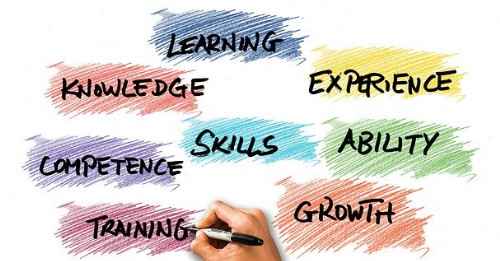4 Ways Mindfulness Can Help You Be Your Own Coach

By Andy Lee, guest contributor
Coaching for professional development is continuing to grow in popularity. The International Coach Federation estimated in 2016 that there are 20,000 coaches in North America and growing, generating $1+ billion in revenue. In this age of endless self-help websites and blogs offering all sorts of job and career advice, it’s easy to understand the appeal of receiving guidance from a single human in a 1:1 setting.
Workplace coaching can have a profound impact on people. It can reveal blind spots, clarify different perspectives on challenges, and support the changing unhelpful or outdated habits. However, coaching – and specifically executive coaching – has some drawbacks. These include the expense, the time, and the possibility that your coach just isn’t that good.
If you are looking to accelerate your professional development and don’t have access to an executive coach, a skillfully applied mindfulness practice can offer you some of the same benefits. Here are some of the ways that mindfulness can help you to access your inner coach:
- Building self-awareness. Self-awareness is about having an accurate picture of your own style, strengths, and areas for development. Lack of self-awareness has long been recognized as a key derailer of promising leaders. Building accurate self-perceptions through observations, assessments, or 360-degree feedback is the first task of a coach.
Mindfulness practice is also a powerful tool to enhance your self-awareness. It helps you to pay attention in real-time to how we act and why, as well as the impact of our actions, with an open and curious mindset. As Yogi Berra says, you can observe a lot just by watching. - Being open to feedback. It’s difficult getting good feedback, and it’s twice as hard when you’re a leader. But often there’s a second hurdle: being willing to accept and integrate the feedback that is offered. Coaches are experts at providing feedback in a way that it will be accepted.
Mindfulness also helps in this area, as it helps you to be more open to critical feedback, and to recover more quickly from any negative reactions that it may cause. - Facilitating behavior change. Once the feedback has been metabolized, that time comes to actually do things differently. Coaches can help to do this by giving clients confidence in their own ability to change and providing support along the way.
Mindfulness practice enhances people’s readiness for change by making the change seem less risky, and increasing their ‘change efficacy’. It also supports the letting go of old habits and the development of new ones in many ways, as the research of Jud Brewer and many others demonstrates. - Ongoing support. Behavior change doesn’t happen in the blink of an eye. It takes practice to flex new mental muscles and work out the kinks in new habits. That’s why coaching engagements often last for six months or longer. But even so, these relationships eventually come to an end. This is the biggest benefit of mindfulness practice. Once you’ve mastered observing and learning from your own actions, this skill will be with you forever.
Of course, a good coach cannot be replaced by mindfulness practice. Coaches offer a wealth of insight and experience that can’t be duplicated. But in the absence of a coach, mindfulness practice can help you to strengthen the mental muscles to become your own coach. And if you do work with a coach, you’ll find that mindfulness will make that process a lot easier and more productive.
Andy Lee has been teaching mindfulness in organizations since 2011. Before founding Mindful Ethos, Andy was Chief Mindfulness Officer at Aetna where he and his team developed a range of programs to create a deeply rooted culture of mindfulness. He has also held senior talent management positions at Merrill Lynch, Viacom and Capital One. Andy is a certified Mindfulness-Based Stress Reduction teacher and holds an MA in Organizational Psychology and a certificate in executive coaching.

1 comment
Please send me lesson my email I mentioned above.
Leave a comment